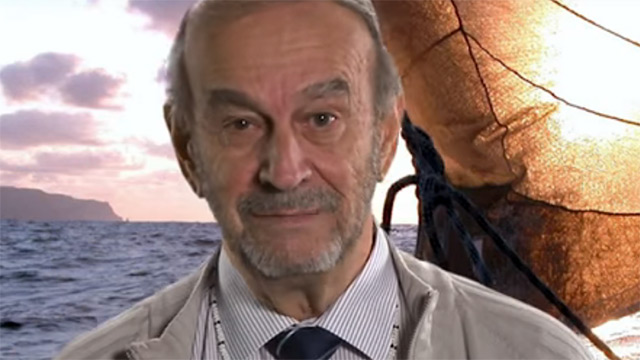Appointment of Msgr. Pierre Blanchard

Montreal
Msgr. Pierre Blanchard, c.s.s., was appointed Episcopal Vicar to the cultural and ritual communities for the Archdiocese of Montreal. In order to get to know him better, he answers a few questions.
First, can you tell us about your new appointment in the Archdiocese? What is the role of an Episcopal Vicar for Cultural and Ritual Communities?
An episcopal vicar, as I understand it, is called to play an intermediary role between the Archbishop, whom he assists, and the group of people to which he is appointed. He must transmit to the cultural and ritual communities the Archbishop's vision of his Archdiocese, his main directions for it, the various policies surrounding its proper operation, and the contribution he would like these communities to make to the life of the Church. As the Archbishop cannot attend everything that goes on in the Archdiocese, his vicar is called to represent him at the many events that mark the life of the various communities.
He is the Archbishop's representative to the communities and is also, in a way, the communities' representative to the Archbishop; he must therefore also inform the Archbishop of what is happening within the various communities. For this, the episcopal vicar must be out in the field as much as possible alongside the parishes and missions belonging to the cultural and ritual communities.
Having already been Episcopal Vicar for the Cultural and Ritual Communities from 1999 to 2003, what is your view of the cultural communities' contribution to the Archdiocese today?
Having filled the position from 1999 to 2003, prior to becoming the Episcopal Vicar of the Northern Region and then pastor of Côte-des-Neiges Parish, I see an increased presence of our sisters and brothers from the 4 corners of the globe in churches served primarily in French. Of course this is clear to see in a neighbourhood like Côte-des-Neiges (one of the most multi-ethnic neighbourhoods in Canada), but this is also the case in Ahunsic and Rosemont, where I had the opportunity to practice my ministry the last few months. I understand that other neighbourhoods (as well as several English parishes) live the same reality. Quite often, members of cultural communities that frequent French parishes are young and bring their children and/or teenagers with them. This brings a renewed vitality to a great number of our Christian communities.
In your experience, what challenges are the cultural and ethnic communities in the Archdiocese of Montreal facing? How can we be Church together?
It's the challenge of finding unity in diversity. It isn't easy to ensure that a "parish" become a true "Christian community," so how can we achieve being Church together across a vast territory like the Archdiocese of Montreal? It doesn't mean that all the members of the family have to do the same things the same way at the same time. The wealth of our diocesan Church lies in the diversity of its people; we must come to understand that what unites us is more important than what divides us.
I believe that prejudices are usually formed in the absence of knowledge; in my opinion, we should therefore increase the opportunities for encounter: liturgical celebrations, formation sessions, various celebrations, joint projects, etc. Before becoming the Episcopal Vicar for Cultural and Ritual Communities in 1999, I had never stepped foot in a church that wasn't French and I am quite certain that this remains the reality still today for a great number of Catholics in our Archdiocese. To visit a church other than our own 1 or 2 times per year could be a very enriching experience!
Do not be afraid. This statement appears often in the Bible and also in texts by Saint John Paul II and Pope Francis. To start off my ministry with the cultural and ritual communities, this is what I feel like saying to them: do not be afraid to claim your rightful place in the life of your Church in Montreal!

Comment
0 Comment
Add new comment